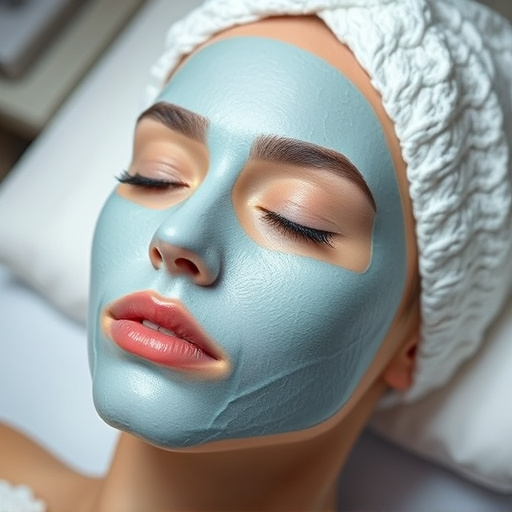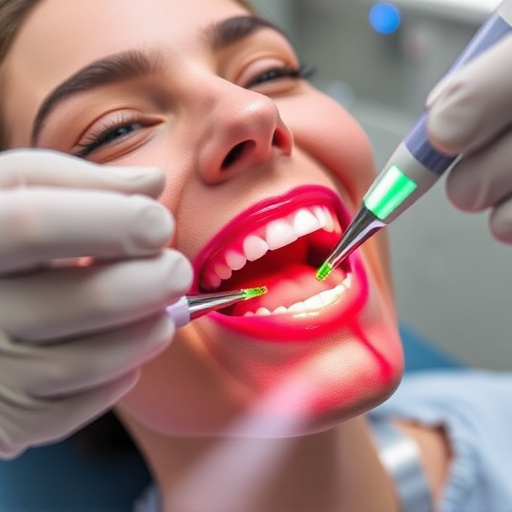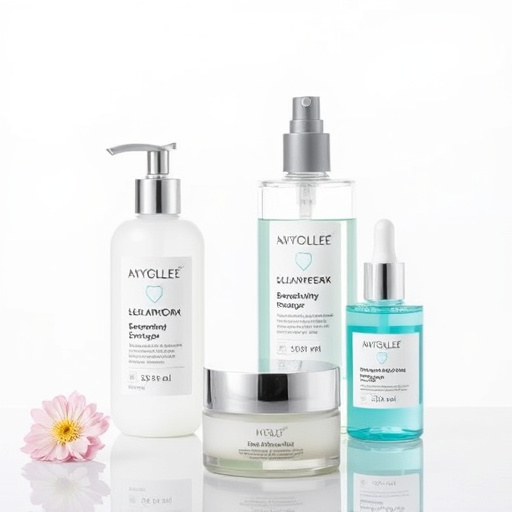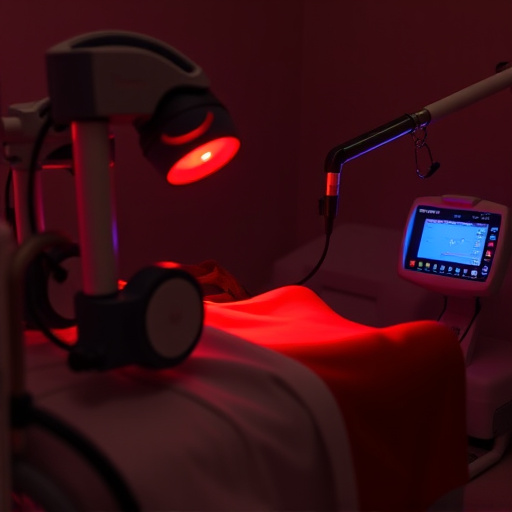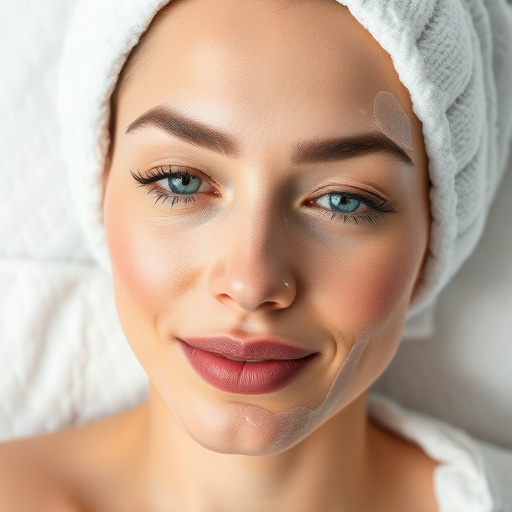Rosacea is a chronic skin condition with varying symptoms, triggered by environmental factors, diet, and stress. Professional skincare and tailored treatments like chemical peels and laser procedures are crucial for management. Advanced medical options like microneedling, IPL, radiofrequency, and laser hair removal target specific rosacea concerns, offering personalized solutions for improved skin texture, reduced vascular abnormalities, and facial hair management. Personalized care, combining medications, routines, and lifestyle changes based on individual triggers, revolutionizes rosacea treatment, focusing on root causes for long-lasting improvements in skin health and appearance.
Rosacea, a chronic skin condition characterized by redness, bumps, and inflammation, can be frustrating. While it has no cure, understanding your triggers is key to managing symptoms effectively. This article explores comprehensive rosacea treatment approaches, from deciphering symptoms and common triggers to advanced therapies and personalized care strategies that target specific irritants for lasting relief. Discover expert insights on reclaiming clear, calm skin.
- Understanding Rosacea: Symptoms and Common Triggers
- Advanced Treatment Options for Effective Management
- Personalized Care: Targeting Triggers for Lasting Results
Understanding Rosacea: Symptoms and Common Triggers
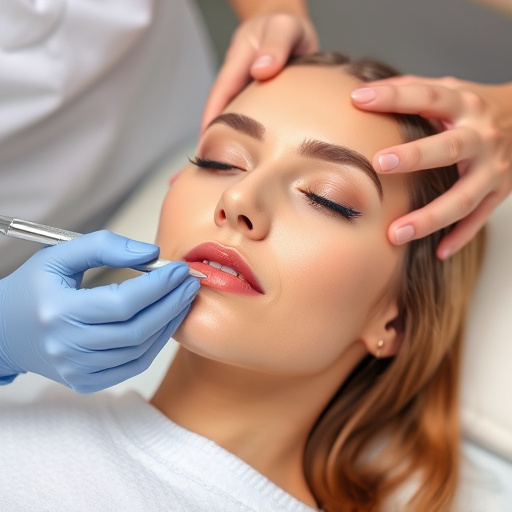
Rosacea is a chronic skin condition characterized by facial redness, small blood vessels visible on the skin (telangiectasias), and in some cases, small bumps filled with pus or solid lumps. It’s important to recognize that symptoms can vary greatly from person to person, appearing as intermittent flare-ups or persistent redness. Common triggers for rosacea include environmental factors such as sunlight, extreme temperatures, wind, and certain emotional states like stress or embarrassment. Dietary choices also play a role; trigger foods can range from spicy meals to dairy products and alcohol.
Professional skincare is pivotal in managing rosacea. Skilled estheticians can recommend tailored treatments that go beyond basic facial care. Chemical peels, for instance, can help reduce visible blood vessels and skin redness by gently exfoliating the top layer of skin. Skin brightening treatments may also be suggested to even out skin tone and minimize the appearance of blemishes. Understanding individual triggers is key; many find relief through avoiding specific irritants and adopting a consistent, professional skincare routine.
Advanced Treatment Options for Effective Management
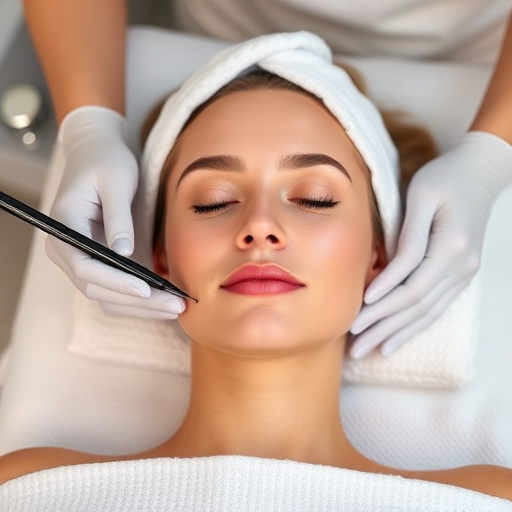
In the quest for effective rosacea treatment, advanced medical procedures have emerged as powerful tools to manage this skin condition. Beyond conventional treatments, professionals now offer a range of innovative options tailored to target specific rosacea triggers and symptoms. One such approach is microneedling therapy, which involves stimulating collagen production by creating tiny pricks in the skin. This process not only improves skin texture but also helps reduce visible vascular abnormalities often associated with rosacea.
Another notable procedure for rosacea treatment includes skin tightening techniques, utilizing technologies like intense pulsed light (IPL) or radiofrequency energy to minimize enlarged blood vessels and enhance overall skin tone. Even laser hair removal has found its place in managing rosacea symptoms, particularly by reducing unwanted facial hair that can exacerbate the condition. These advanced treatments offer personalized solutions, ensuring individuals receive the most suitable care for their unique rosacea triggers and skin concerns.
Personalized Care: Targeting Triggers for Lasting Results
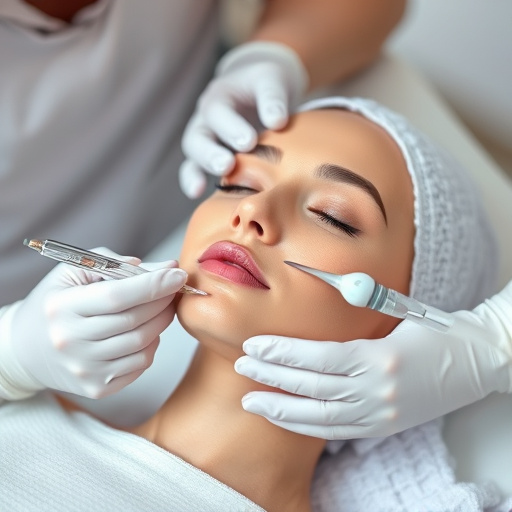
Personalized care is a game-changer when it comes to effectively managing rosacea. By targeting specific triggers, dermatologists can craft tailored treatments that go beyond conventional rosacea treatment methods. This approach recognizes that each individual’s experience with rosacea is unique, influenced by various factors such as environmental conditions, lifestyle choices, and even genetic predispositions.
Instead of a one-size-fits-all solution, experts focus on identifying personal triggers through detailed skin assessments and patient history analysis. Once these triggers are understood, targeted strategies can be implemented to reduce symptoms and prevent flare-ups. This may include prescription medications for inflammation control, specialized skincare routines with specific active ingredients, and even lifestyle modifications like dietary adjustments or stress management techniques. By addressing the underlying causes rather than just the symptoms, personalized rosacea care ensures lasting results and a significant improvement in skin health and appearance, considering even related concerns such as anti-aging treatments and wrinkle reduction.
Rosacea management requires a tailored approach, addressing both symptoms and triggers. By understanding individual flare-up causes, advanced treatment options, and personalized care, those with rosacea can achieve lasting relief. Expert interventions offer hope for effective rosacea treatment, enabling individuals to reclaim their skin’s health and confidence.


